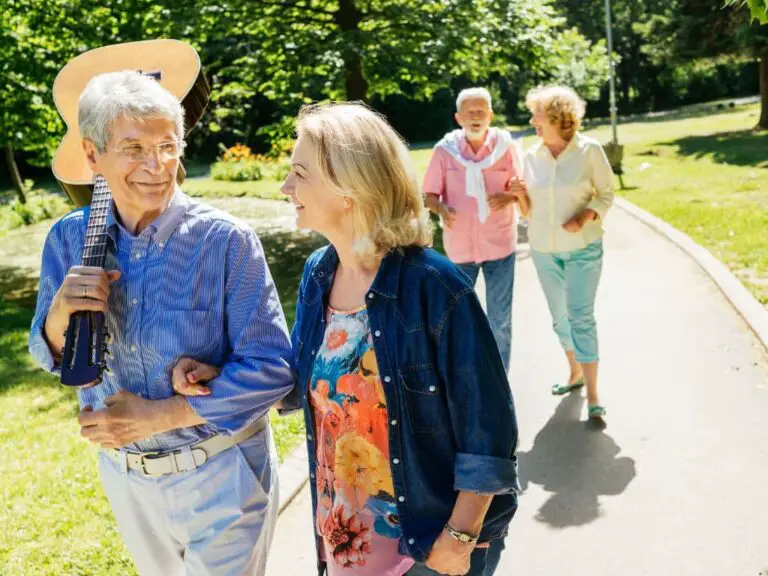What to Do if You Have No Friends
As we get older, it can sometimes become more difficult to make new friends and maintain strong social connections. Many seniors find themselves dealing with loneliness and social isolation after retirement, the death of a spouse, or relocating to a new city. While making friends as an adult presents certain challenges, it is possible to meet new people and cultivate meaningful relationships at any age.
If you find yourself without friends, the first step is to engage with your community through activities like volunteering, taking classes, or joining local clubs or interest groups, which will provide social interaction and potentially shared interests with others. If face-to-face interaction is more difficult, use technology to connect with online communities based on your interests, use apps like Facebook or Nextdoor, or engage in video chat conversations.
Overcoming potential obstacles such as shyness, limited mobility, or difficulty finding like-minded people may require taking things slow, seeking accessible locations or virtual communication, and being patient in finding people you connect with.

In this article, we’ll discuss proactive tips and approaches for seniors who want to enhance their friendships, improve their mental health, and lead more engaged, fulfilling lives. We’ll explore strategies for making friends in your local community, using technology to stay connected, overcoming barriers to building relationships, and developing rewarding connections that provide companionship and support.
How to Meet New People and Make Friends After 60
As the old saying goes, you have to leave the house to make new friends. Here are some suggestions for seniors who want to get out in the community and meet new people:
- Join a senior center, club, or community group: Senior centers offer activities and events specifically geared towards older adults. They also provide opportunities to volunteer. Joining a senior hiking club, book club, or crafting circle is another way to regularly interact with peers who share common interests.
- Take a class and connect with fellow students: Enrolling in a class at a local college or community center allows you to regularly interact with others while learning something new. Try a cooking, art, or computer skills class.
- Volunteer at a local organization: Schools, hospitals, places of worship, museums, and nonprofits often need volunteers. Find a cause you care about and volunteer your time and talents. This provides a way to do good while meeting like-minded people.
- Attend events at your local community center: Look for free public lectures, exercise classes, concerts, movie screenings, and other activities hosted at your local community center. These events make it easy to mingle with others.
- Go on group trips or tours aimed at seniors: Local travel companies offer bus trips and tours designed for older adults. Destinations might include concerts, shows, museums, restaurants, and more. Signing up allows you to see new places while meeting potential friends.
Tips for Building Strong Friendships as You Age
Making acquaintance is an important first step, but developing meaningful, lasting friendships requires effort and commitment. Here are some tips for cultivating quality friendships that stand the test of time:
- Be open-minded about getting to know new people: Say yes to social invitations and conversations even if someone seems very different from you at first glance. They might surprise you with how much you end up having in common or teaching you a new perspective.
- Show interest in others by asking questions and listening: People are drawn to those who display genuine interest in who they are. Ask others about their lives, families, work, passions – and really listen when they answer.
- Make plans and follow through to nurture new friendships: Casual acquaintances become close friends when you make spending quality time together a priority. Arrange regular get-togethers like going to lunch or the park. Reach out frequently via phone and text as well.
- Share your experiences and let others share too: Close friends feel comfortable opening up and confiding in one another. Be supportive when your new friend shares something personal. In turn, open up about your own experiences, views, and feelings to deepen the friendship.
Using Technology to Stay Connected and Combat Loneliness
While face-to-face interaction is ideal, technology tools and online platforms can also help seniors make friends and stay socially engaged:
- Learn how to use social media sites and apps to connect with others:Platforms like Facebook allow you to join special interest groups, reconnect with old friends, and meet new people online. Apps like Nextdoor let you interact with neighbors.
- Join online communities, forums, or interest groups: For almost any hobby, cause, or passion – there’s an online community you can join to discuss it with others. Search sites like Reddit to find forums relevant to your interests. Introduce yourself and participate regularly.
- Use video chat services to have face-to-face conversations: Apps like FaceTime, Skype, and Zoom make it easy to have video chats with friends and family. Schedule virtual meetups to catch up without having to leave home.
Overcoming Barriers to Friendship as a Senior
Seniors may encounter unique obstacles around developing friendships, but these can be worked through with some effort:
- How to move past shyness or social anxiety: If you’re naturally reserved or experience anxiety in groups, start small by chatting with just one new acquaintance. Build up your confidence slowly. Consider joining a support group as well.
- Getting out of the house when you have limited mobility: If health issues make it hard to leave home, arrange for a friend or transportation service to pick you up. Meet friends at easily accessible locations. Video chatting is another option.
- Finding friends with common interests or personalities: Seek out activities, classes, and groups related to your hobbies or causes to find like-minded friends. Be patient – the first people you meet might not click right away.
Developing Meaningful Connections for Health and Happiness
As we grow older, studies show prioritizing meaningful relationships leads to better mental and physical health. Here are tips for fostering rewarding, uplifting friendships as a senior:
- Surround yourself with positive people who uplift you: Limit time spent with friends who are negative, cynical, or prone to drama. Instead, make bonding with upbeat, encouraging friends a priority.
- Find or create a sense of purpose through friends and community:Volunteering, joining clubs, taking classes, and making friends helps provide seniors with a sense of belonging and meaning.
- Cherish quality relationships that provide love and support: Make time for close friends who enhance your life through their compassion, loyalty, and commitment to the friendship. Celebrate each other through good times and hard times.
Conclusion
Making new friends and nurturing relationships helps seniors stay engaged, upbeat, and purposeful as they age. While it can be challenging at times due to limited mobility, lack of confidence, or communication barriers, remember to be patient with yourself and others. Focus on quality connections over quantity by being open, supportive, and present. Foster a diverse social network and the companionship you crave will follow.







